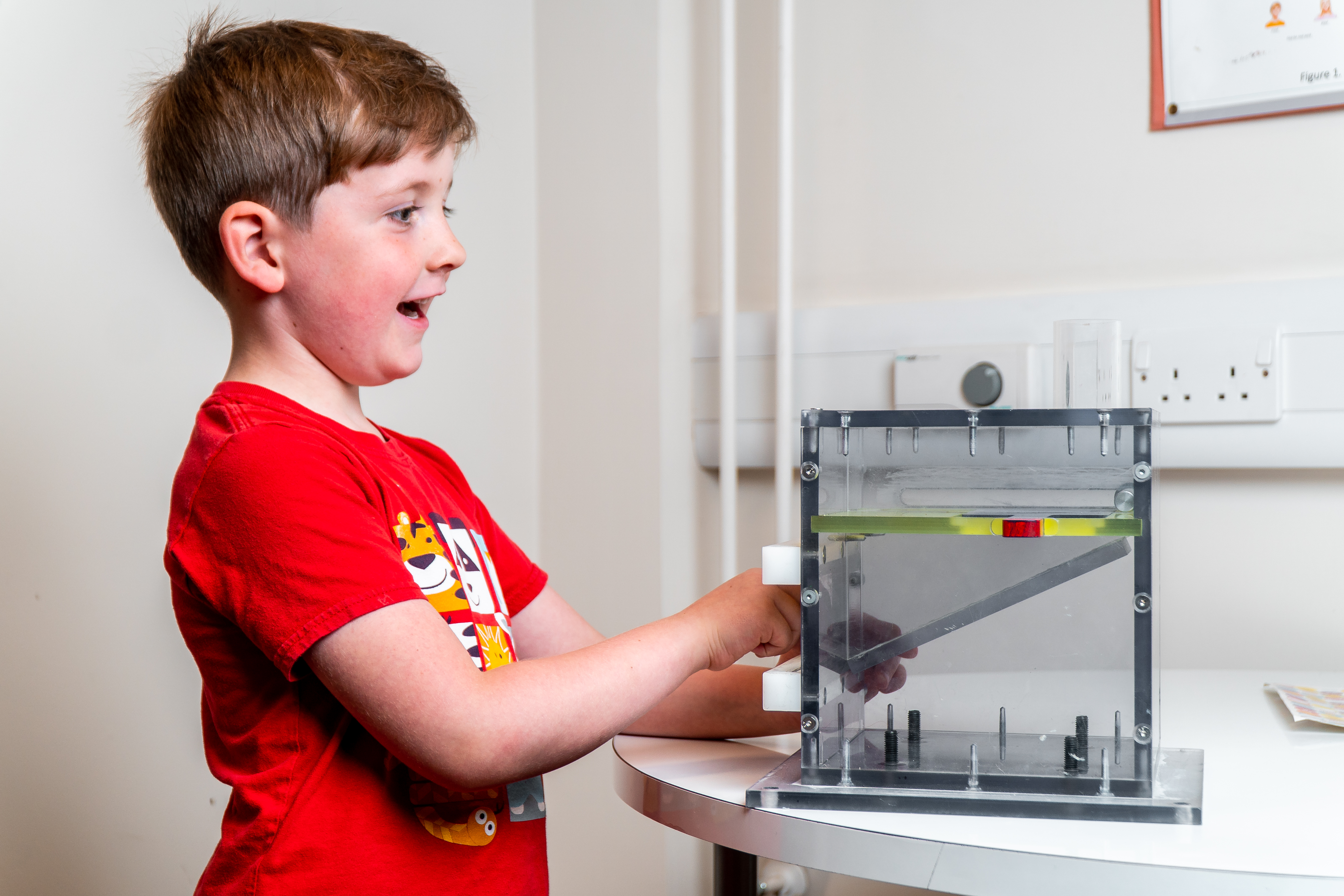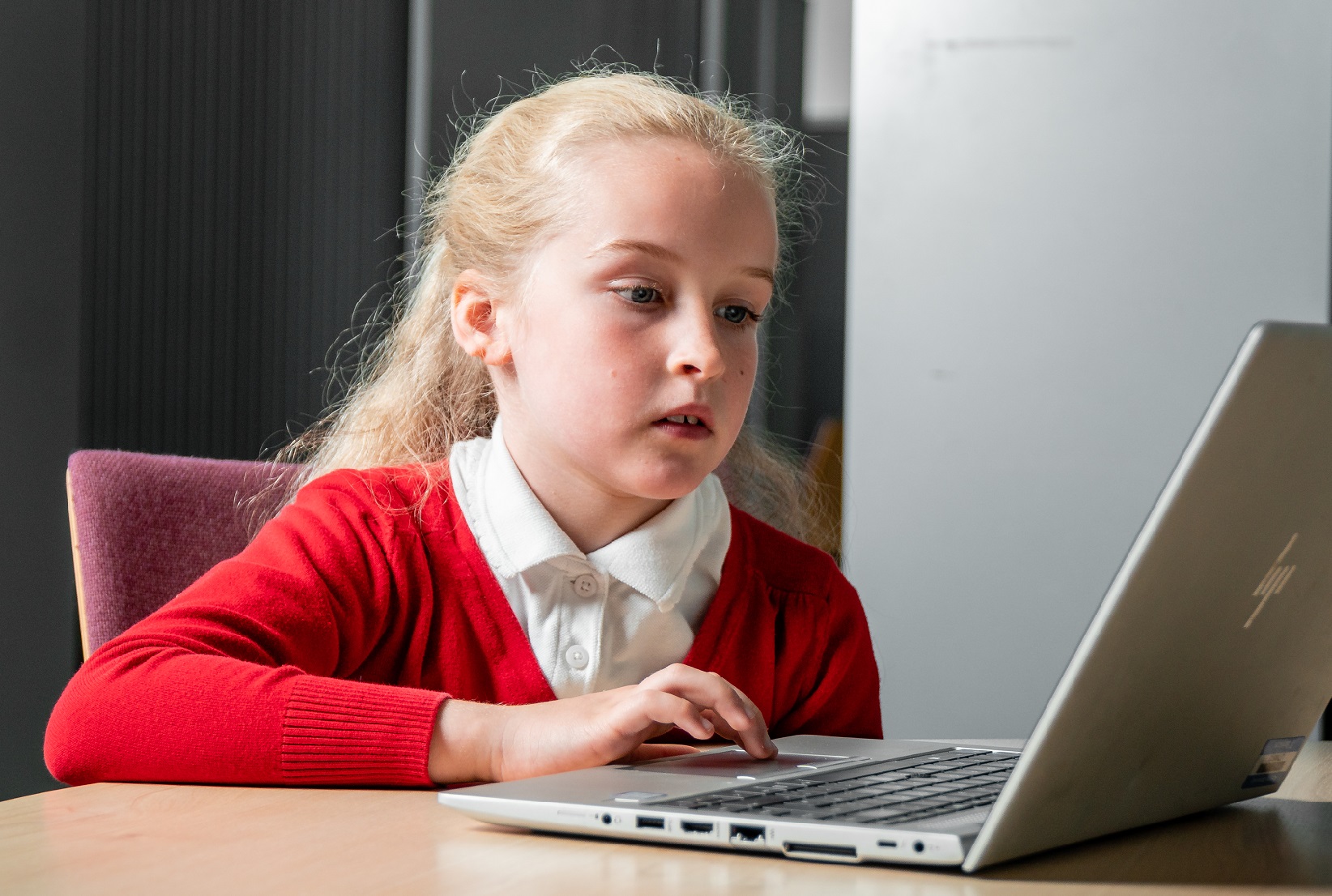Pause carousel
Play carousel
We are an active team of developmental researchers working to find out more about children’s cognitive skills, language development, social behaviour, and how to support children in their learning.
Our research is designed to help and inform practitioners such as teachers or those developing policies and curriculums.

We don't currently have any online studies. Please check back soon.
Please have a look at the Recent Research section below to see the kinds of studies we run.

These projects require a researcher to visit children in a community setting and/or participants coming into our Lab at Abertay.
Secondary schools wanted for collaboration in research to reduce gender biases in young people’s education and career aspirations. Contact: lara.wood@abertay.ac.uk or s.cunningham@abertay.ac.uk
Primary and secondary schools wanted for collaboration in research on maths anxiety. Contact: j.mclean@abertay.ac.uk
Parents and toddlers required for a Community Robotics project training a robot who can speak to children in ways that enhances their language development. Contact: wordmate@abertay.ac.uk
In this research Children in Scotland aged 9-15 were asked which gender would be better at different subjects and occupations.
The research measured gender stereotype knowledge (what do 'most people' think) and their personal agreement (what do they think). 13-15 year-old girls disagreed with known stereotypes far more than 13-15 year old boys and younger children.
13-15 year olds were also asked about their option subjects.
On average, girls were choosing both stereotypically male and female subjects (around 50:50) whereas boys were picking mostly male subjects (around 75:25). With boys there was a relationship between agreeing with stereotypes and how many stereotypically male subjects they choose. That is, boys who agreed with more gender stereotypes picked more stereotypically male school subjects. There was no such relationship with the girls.
This is important research showing that teenage boys are more likely to agree with stereotypes and this may be guide their subject choices at school. There may be a need to challenge gender stereotypes to uncover why boys may place gender stereotypical limitations on themselves in terms of subject choice.
Read more about this research in the British Journal of Social Psychology. and PLoS ONE.
Contact Dr Lara Wood lara.wood@abertay.ac.uk or Prof Sheila Cunningham s.cunningham@abertay.ac.uk.
This programme of research explores the impact of self-cues such as own names or personal pronouns on children’s performance in educational tasks.
Self-cues attract attention, supporting task engagement and reducing working memory load, and are preferentially stored in long term memory, supporting learning.
We have published research evidencing the educational benefits of applying self-cues in tasks such as spelling practice. Read the paper published in 'Learning and Instruction', and the paper published in the Journal of 'Applied Research in Memory and Cognition'.
Our recent work on the facilitative effects of including self-cues in numerical problem-solving tasks shows that problems that include the word 'you' are solved more quickly and accurately by children. You can read this research published in the Quarterly Journal of Experimental Psychology.
We have also published a paper in the Quarterly Journal of Experimental Psychology on how these effects might be underpinned by self-processing biases in working memory.
Read an overview of the educational benefits of self-referencing, which includes activity sheets for teachers and parents.
For more information, contact Prof Sheila Cunningham s.cunningham@abertay.co.uk or Dr Janet McLean j.mclean@abertay.ac.uk.
Using novel technology to help investigative interviewing with children and young people
Physical and sexual abuse of children poses a great threat to young people in the UK and the rest of the world. Using appropriate investigative interviewing techniques is key to obtain complete and accurate accounts from witnesses and victims.
This programme of research explores how virtual characters like avatars and related novel technologies like immersive virtual reality can help to gather sensitive information from young witnesses and victim.
A recent survey study presented at the International Investigative Interviewing Research Group conference (Conway et al., 2022) revealed that children and young people preferred to disclose forensic information to an adult of the same gender as the discloser. In practice, gender-matched interviewers might not always be available. Virtual characters can easily take on different gender identities and other unique characteristics that might help the police and social work during the elicitation of traumatic and forensically relevant information.
A series of future studies will explore how avatars impact disclosure, episodic memory performance, and suggestibility in children and young people during investigative interview settings.
For more information, contact Dr Julie Gawrylowicz j.gawrylowicz@abertay.ac.uk.
A number of recent and current projects uses iterated language learning to find out what role, if any, children with their specific learning abilities, may play in how languages evolve and change.
For example, we are studying whether younger and older individuals differ in how they ascribe meaning to emojis or whether children add structure to novel signalling systems. Read about how children and adults differ in transmitting random dot patterns in the journal Cognition and how they create new signalling systems in the Journal of Language Evolution.
In this Leverhulme Trust-funded project we asked how exposure to a regional dialect affects learning to read and spell.
One way of studying the process of literacy learning is to use artificial languages with artificial scripts. They allow us to control what participants already know, and to manipulate what they get to learn from scratch in our experiments.
In collaboration with Dr Glenn Williams from Northumbria University and PhD-student Nikolay Panayotov, we created a small made-up language with its own made-up script to see how variation in how some words sound impacts the learning process. In a nutshell, our learners incurred a small local cost in learning just those words that have other variants, but having these words not slow down the overall literacy learning process.
The results have been published in the Journal of Experimental Psychology: General and the Journal of Experimental Psychology: Learning, Memory and Cognition.
Adolescence is a period of development where individuals make key choices about educational and career pathways. It is also a time in which same-age peers are highly influential; but which peers are most influential is still not clear.
The Gender Stereotypes Lab based at Abertay University conducted research with adolescents aged 13- to 17-years-olds to see who was more influential to them in different contexts; a male peer or a female peer. We found that males and females were influenced by, and copied the choices of, these peers. However, while the girls showed no preference for either model, the boys were more influenced by the male than the female peer, in a range of contexts. Males also showed higher gender stereotype endorsement and a higher number of typically own-gender (male) subject choices at Nat 5.
This research exemplifies that social influence in adolescence is present and is gendered. You can read about this research in PLOSone.
Contact Dr Lara Wood lara.wood@abertay.ac.uk
Prof Sheila Cunningham s.cunningham@abertay.ac.uk.
Digital technology is a part of children’s everyday lives, yet very little known about teachers’ perceptions and practice of cybersecurity education in primary education.
This research distributed a questionnaire to primary school teachers across Scotland, with 114 teachers across 14 local authority areas responding to questions identifying the aspects of cybersecurity teachers taught, to what ages, their own perceptions and confidence in cybersecurity education, and potential teaching enhancements.
Results indicate that cybersecurity education in primary school centres around passwords, with phishing and hacking predominantly taught only to older age groups. Teachers reported several problematic password creation behaviours including children not creating their own passwords, creating weak passwords and including self-relevant information. In relation to authentication, forgetting was a pervasive issue across all age groups, prompting teachers to employ various support strategies that potentially exacerbate poor password practice.
Finally, teachers expressed a need for additional training, age-appropriate resources, and curriculum support for teaching cybersecurity to primary-age children.
Read more about this research in Discover Education or contact Dr Lara Wood lara.wood@abertay.ac.uk or Dr Suzy Prior s.prior@abertay.ac.uk.
Full title: Children's media can portray gender stereotypes which might influence the way children view their social world.
This research investigated whether children's animated films (e.g., Zootopia) contain a gender stereotypic association of males as predators and females as prey, and whether this correlated with young children's associations.
It was found that for over 1,500 animal characters, 75% of them were male and there was a significant relative bias towards predator characters being male and prey characters bring female.
In a follow up study, children and adults completed explicit and implicit predator-male and prey-female association measures. Both groups showed a male character bias, along with strong explicit and implicit predator-male and prey-female associations.
As predators and prey and no more likely to be female than males, this is a clear example of how media can create and perpetuate inaccurate gender association which can then be internalised by children and adults.
Read more about this research in Social Development.
For more information, contact Dr Lara Wood lara.wood@abertay.ac.uk